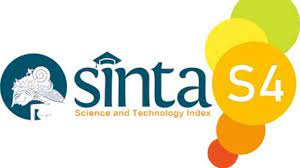ADULT LEARNERS’ EXPERIENCES IN LEARNING ENGLISH: A CASE STUDY OF TWO UNIVERSITY STUDENTS IN INDONESIA
DOI:
https://doi.org/10.30957/ijoltl.v2i2.280Keywords:
adult learners, learning patterns, EFLAbstract
As a modified replication of Bellingham’s (2004) investigation, this case study primarily explores experiences of 30s Indonesian university students in learning English as a Foreign Language (EFL) at English Language Education Study Program, Masyarakat University Indonesia (ED-DU). The study specifically investigates cases of two ED-DU students who shared their experiences in learning EFL in their age. I recalled their experiences using an open-ended questionnaire and a semi-structured interview. I continued to collate and summarize the data into themes. Eventually, the present findings reveal six learning patterns of the students, confirm the existence of L2 acquisition for adult learners stated by Bellingham’s investigation, and provide some evidence that EFL learning acquisition is not limited by age.
Â
Â
Downloads
References
REFERENCES
Alsayed, M. (2003). Factors that contribute to success in learning English as a foreign language. Damascus University Journal, 19(1+2), 21-44.
Ary, D., Jacobs, L.C., & Sorensen, C. (2010). Introduction to research in education. Belmont: Wadsworth, Cengage Learning.
Bellingham, L. (2004). Is there language acquisition after 40? Older learners speak up. In Benson, P., & Nunan, D. (Eds.). Learners’ stories: Differences and diversity in language learning. Cambridge: Cambridge University Press.
Brown, H.D. (2007). Principles of language learning and teaching (5th ed.). New York: Pearson Education, Inc.
Canadian Literacy and Learning Network. (2016). Principles of adult learning. Retrieved May, 10, 2016, from http://www.literacy.ca/professionals/professional-development-2/principles-of-adult-learning/
Cenoz, M. (2003). The influence of age on the acquisition of English: General proficiency, attitudes and code-mixing. In Mayo, M,P,G., & Lecumberri, M.L.G. (Eds.). Age and the acquistion of English as a foreign language. New York: Multimulingual Matters Ltd.
Cercone, K. (2008). Characteristics of adult learners with implications for online learning design, AACE Journal, 16(2), 137-159.
Cohen, L., Manion, L., & Morrison, K. (2007). Research methods in education. New York: Routledge.
Contesse, C.A. (2009). Age and the critical period hypothesis. ELT Journal, 63(2), 170-172. Retrieved May 18, 2016, from http://eltj.oxfordjournals.org/content/63/2/170.full#ref-10
Costandi, M. (2014, September 13). Am I too old to learn a new language? The Guardian, Retrieved May 10, 2016, from http://blog.esl-languages.com/blog/learn-languages/harder-to-learn-language-older-age/
Creswell, J.W. (2007). Qualitative inquiry and research design: Choosing among five approaches (2nd ed.). London: Sage Publications, Inc.
Ellis, R. (1994). The study of second language acquisition. Oxford: Oxford University Press.
Fraenkel, J.R., & Wallen, N.E. (2009). How to design and evaluate research in education (7th ed). New York: The McGraw-Hill Companies, Inc.
Gass, S.M & Selinker, L. (2001). Second language acquisition: An introductory course (2nd ed). New Jersey: Lawrence Erlbaum Associates.
Hammond, A. (2014). Does it get harder to learn a language as you get older? Retrieved May 10, 2016, from http://blog.esl-languages.com/blog/learn-languages/harder-to-learn-language-older-age/
Hancock, D.R., & Algozzine, B. (2006). Doing case study research: A practical guide for beginning researchers. New York: Teachers College, Columbia University.
Harmer, J. (2007). The practice of English language teaching (4th ed.). Essex: Pearson Education Limited.
Hegarty, N. (2011). Adult learners as graduate students: Underlying motivation in completing graduate programs. The Journal of Continuing Higher Education, 59, 146-151.
Khamkhien, A. (2010). Factors affecting language learning strategy reported usage by Thai and Vietnamnese EFL learners. Electronic Journal of Foreign Language Teaching, 7(1), 66-85.
Kimura, Y., Nakata, Y., & Okumura, T. (2000). Language learning motivation of EFL learners in Japan-A cross sectional analysis of various learning milieus. JALT Journal, .47-65.
Lifrieri, V. (2005). A sociological perspective on motivation to learn EFL: The case of Escuelas Plurilingues in Argentina. M.A thesis, University of Pittsburgh.
Lightbown, P.M., & Spada, N. (1999). How languages are learned (2nd ed.). Oxford: Oxford University Press.
Malilang, C.S. (2013). How children decode visual narrative in Gaiman’s and McKean’s The Wolves in the Walls. Resital, 14(1), 81-90.
Malone, S. (2014). Characteristics of adult learners. Training & Development, 11-13.
Mambu, J.E. (2014). Co-constructing an EFL student teacher’s personal experience of teaching practice. K@ta, 16(2), 61-69.
McDonough, S. (1983). Psychology in foreign language teaching. George Allen & Unwin: London.
Nunan, D., & Benson, P. (2004). Conclusion. In Benson, P., & Nunan, D. (Eds.). Learners’ stories: Differences and diversity in language learning. Cambridge: Cambridge University Press.
Paul, S. (2016). The factors that influence the acquisition of a second language. Retrieved May 10, 2016, from http://esl.fis.edu/teachers/support/factors.htm
Prentiss, T.M. (1995). An analysis of student lived and perceived experiences in high school English. The Journal of Classroom Interaction, 30(2), 27-39.
Richards, J.C. (2001). Curriculum development in language teaching. Cambridge: Cambridge University Press.
Sawir, E. (2005). Language difficulties of international students in Australia: The effects of prior learning experience. International Education Journal, 6(5), 567-580.
Shumin, K. (2002). Factors to consider: Developing adult EFL students’ speaking abilities. In Richards, J.C., & Renandya, W.A. (Eds.). Methodology in language teaching: An anthology of current practice (pp.374-383). Cambridge: Cambridge University Press.
Thoms, K.J. (2001). They’re not just big kids: motivating adult learners. ERIC, 1-11. Retrieved May, 18, 2016, from http://files.eric.ed.gov/fulltext/ED463720.pdf
Todd, S.H.M., Marshall, B., & Snow, C.E. (2000). Three misconceptions about age and L2 learning. TESOL Quarterly, 34(1), 9-34.
Troike, M.S. (2006). Introducing second language acquisition. Cambridge: Cambridge University Press.
Wang, W. (1999). Age and second language acquisition in adulthood: The learning experiences and perceptions of women immigrants. TESL Canada Journal, 16(2), 1-19.
Wu, R., Wu, R., & Le, V.T. (2014). Challenges of adults in learning English as a second language: Focus on adult education in China. Journal of Language Teaching and Research, 5(5), 1132-1138.
Zhao, A,H,Q. (2004). Consideration of age in L2 attainment-children, adolescents and adults. Asian EFL Journal, 1-13. Retrieved May 17, 2016, from http://asian-efl-journal.com/1433/quarterly-journal/2004/12/consideration-of-age-in-l2-attainment-children-adolescents-and-adults/
Downloads
Published
How to Cite
Issue
Section
License
Authors who publish with this journal agree to the following terms:
- Authors retain copyright and grant the journal right of first publication with the work simultaneously licensed under a Creative Commons Attribution-ShareAlike 4.0 International License that allows others to share the work with an acknowledgement of the work's authorship and initial publication in this journal.
- Authors are able to enter into separate, additional contractual arrangements for the non-exclusive distribution of the journal's published version of the work (e.g., post it to an institutional repository or publish it in a book), with an acknowledgement of its initial publication in this journal.
- Authors are permitted and encouraged to post their work online (e.g., in institutional repositories or on their website) prior to and during the submission process, as it can lead to productive exchanges, as well as earlier and greater citation of published work (See The Effect of Open Access).












